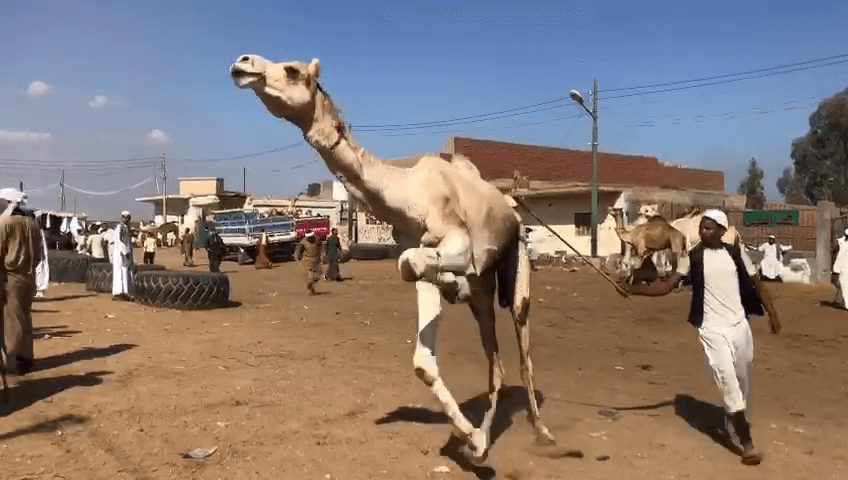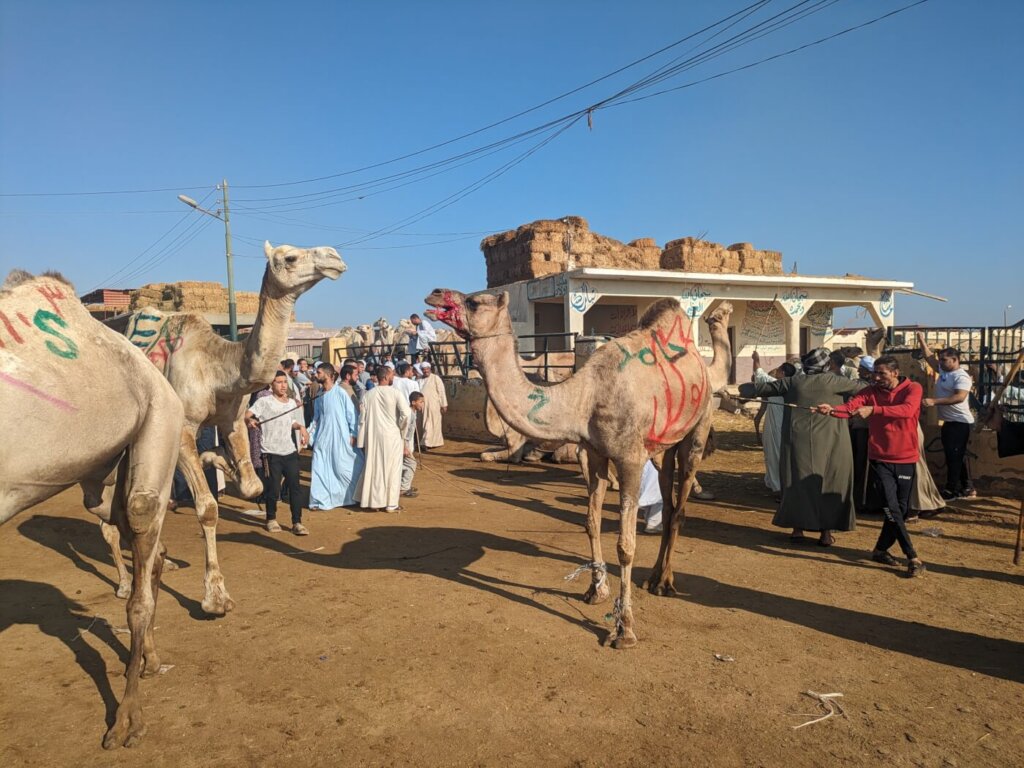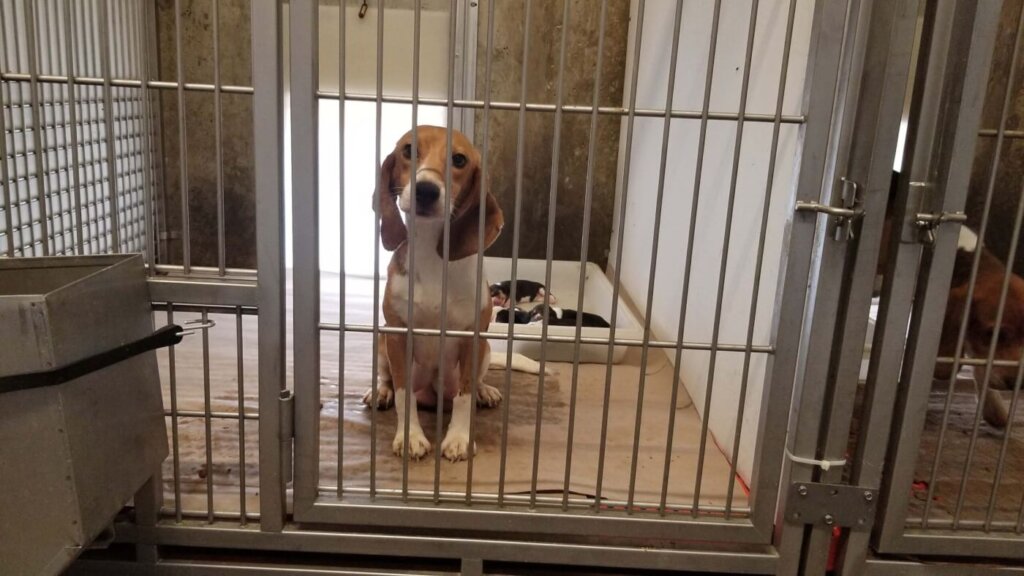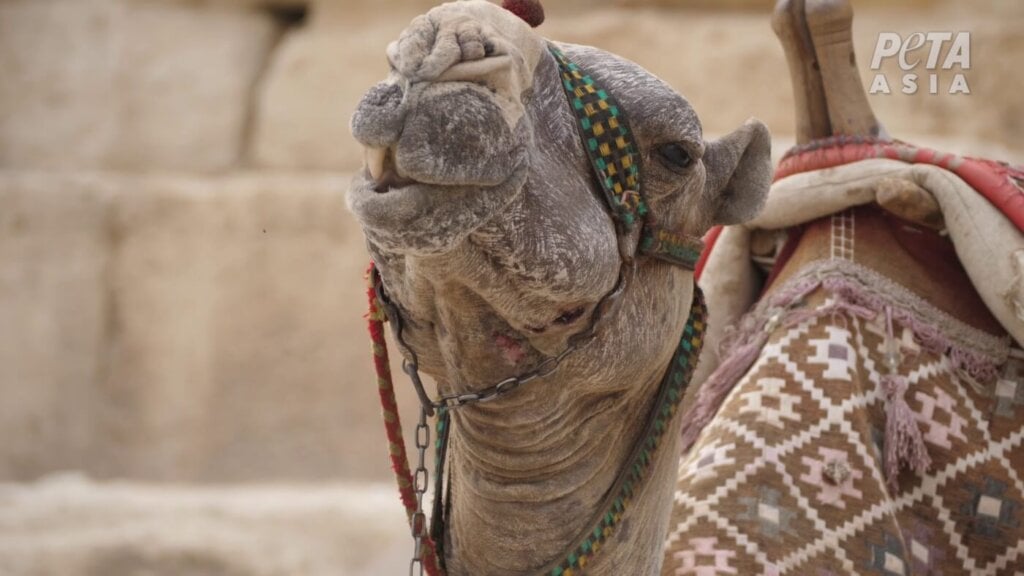
Egypt Update: PETA’s Pressure Spurs Government Action, but More Is Needed
Following two PETA exposés and pressure from thousands of PETA entities’ supporters worldwide, Egypt is finally taking steps to make meaningful changes for the horses and camels exploited at its top tourist sites. We thank Orascom Pyramids Entertainment for its support and commitment to positive change at the pyramids.
Minister of Tourism and Antiquities Sherif Fathy and Minister of Agriculture and Land Reclamation Alaa Farouk launched the National Programme for the Care and Protection of Horses, Camels, and Pets at Archaeological Sites. This programme aims to provide veterinary care to animals used at archaeological sites throughout the country. Veterinarians will also permanently be on duty at the pyramids.
While this could mark a positive change, it’s too early to tell whether it will be truly impactful or is merely a response to pressure. At PETA, we’ve seen governments announce initiatives that sound great but fail to change things on the ground, and a previous veterinary clinic at the pyramids allowed sick and injured animals into the park without inspection. But since tourists and travel agencies are now avoiding Egypt’s famous sites, authorities clearly felt that they needed to take action.

Help Us Keep the Pressure on Egypt’s Tourism Industry
The only reliable way to ensure that horses and camels don’t suffer is to keep them away from the pyramids altogether. So we will continue to push for a complete ban on the use of these animals at the pyramids of Egypt and other tourist sites. Horses and camels are highly social animals who form lifelong friendships within their herds. These sensitive, emotional individuals do not want to be forced to carry tourists or used as photo props.
And even with better veterinary care, horses and camels will still suffer. PETA Asia’s latest mini documentary shows that handlers violently whip exhausted horses in front of the tourists they’re forced to carry in the blistering sun. When camels are no longer considered “useful”, they’re often hauled to a slaughterhouse, where workers slit their throats while they’re still conscious.
What You Can Do to Help Horses and Camels in Egypt
You can help horses, camels, and all other animals by never riding them or participating in experiences that involve using animals.
Please join PETA in urging Egyptian officials to ban the use of these animals in the tourism industry:
Animals Are Suffering in Laboratories – Help Save Them Now



